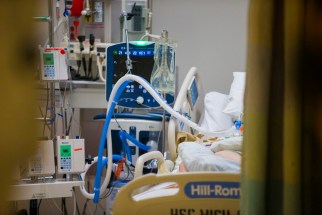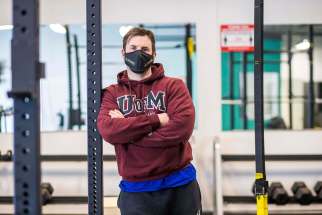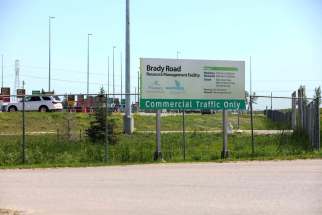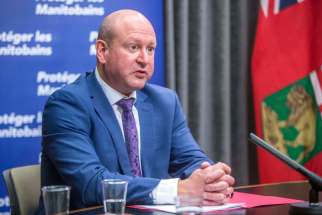Possibility of a surge in cases increases after Manitoba records first case of U.K. variant
Read this article for free:
or
Already have an account? Log in here »
To continue reading, please subscribe:
Monthly Digital Subscription
$0 for the first 4 weeks*
- Enjoy unlimited reading on winnipegfreepress.com
- Read the E-Edition, our digital replica newspaper
- Access News Break, our award-winning app
- Play interactive puzzles
*No charge for 4 weeks then price increases to the regular rate of $19.00 plus GST every four weeks. Offer available to new and qualified returning subscribers only. Cancel any time.
Monthly Digital Subscription
$4.75/week*
- Enjoy unlimited reading on winnipegfreepress.com
- Read the E-Edition, our digital replica newspaper
- Access News Break, our award-winning app
- Play interactive puzzles
*Billed as $19 plus GST every four weeks. Cancel any time.
To continue reading, please subscribe:
Add Free Press access to your Brandon Sun subscription for only an additional
$1 for the first 4 weeks*
*Your next subscription payment will increase by $1.00 and you will be charged $16.99 plus GST for four weeks. After four weeks, your payment will increase to $23.99 plus GST every four weeks.
Read unlimited articles for free today:
or
Already have an account? Log in here »
Hey there, time traveller!
This article was published 09/02/2021 (1761 days ago), so information in it may no longer be current.
A Winnipegger who travelled to Africa and Europe has brought back Manitoba’s first detected case of the U.K. variant of COVID-19, officials learned this week, just as they prepare to loosen pandemic restrictions.
“Once (variants) do find their way into Manitoba, I think the probability of yet another surge is quite high,” said Dr. Anand Kumar, an infectious disease specialist, who noted vaccines still aren’t widely available.
“This could be a lot more complicated than the simple story that we’re at the beginning of the end.”
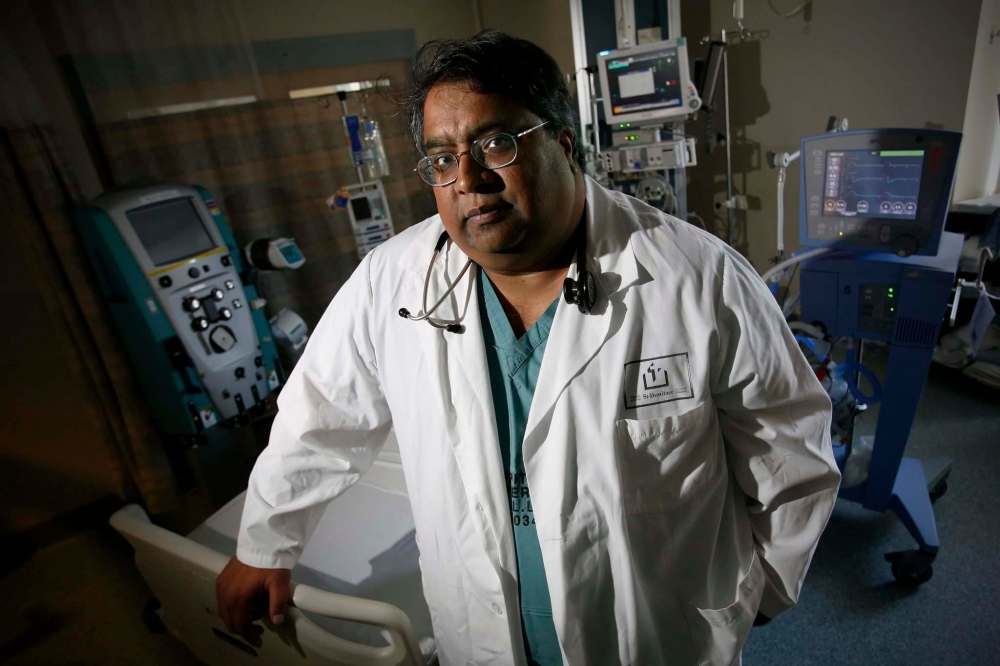
Manitoba officials say a traveller came home to Winnipeg on Jan. 19, after going to Africa and then Europe. The person took a COVID-19 test on Jan. 21, which came back positive the next day. All five members of the traveller’s household had self-isolated.
The positive sample was selected for sequencing, a practice in which scientists at the National Microbiology Laboratory in Winnipeg dissect its gene structure and look for mutations. On Monday evening, the lab informed the Manitoba government the sample contained the B.1.1.7 variant, which has taken hold in the United Kingdom. British authorities believe it is 30 per cent to 50 per cent more transmissible.
“Once (variants) do find their way into Manitoba, I think the probability of yet another surge is quite high.”– Dr. Anand Kumar
As with variants that have taken hold in South Africa and Brazil, the U.K. strain has a modified spike protein that does a better job of binding to cells than the original COVID-19 virus.
While public health officials generally categorize an exposure as 15 minutes of contact with someone, some have suggested a shorter time period might account for the more transmissible strains that have started to circulate in Ontario and Alberta.
Flights with variant case

Manitoba’s online list of flights with confirmed COVID-19 cases shows how the Winnipegger with the B.1.1.7 variant flew home.
Two flights on Jan. 19 are listed as having a “variant of concern linked to this flight.”
Air Canada flight 271 from Toronto-Pearson to Winnipeg has rows 13 to 19 marked as a possible exposure.
The other is Lufthansa flight 470 from Frankfurt to Toronto-Pearson, with rows 39 to 45 possibly exposed.
— Dylan Robertson
“This (U.K.) variant, and the others, are significantly more transmissible than the standard version we’ve been dealing with,” said Kumar, an ICU physician who is helping the federal lab figure out which samples should undergo genetic sequencing.
Dr. Brent Roussin, Manitoba’s chief public health officer, noted that coronaviruses mutate frequently, but it wasn’t a problem in the province until now.
“We’ve detected many, many variants in Manitoba over time, just none of them really had any clinical significance, up until now,” Roussin said.
“So, we do anticipate seeing the other variants of concern here in Manitoba.”
Meanwhile, Manitobans who have a travelling housemate who brings a COVID-19 variant home will have to self-isolate for as many as 24 days.
Roussin said that when a variant case is confirmed, all household contacts will need to isolate for 14 days after the positive case’s incubation period, which ends 10 days after the onset of symptoms.
For example, in the case of a man who returns home, has a cough, and ends up having been infected with a variant, his wife and kids would be stuck at home for 24 days after the onset of his symptoms.
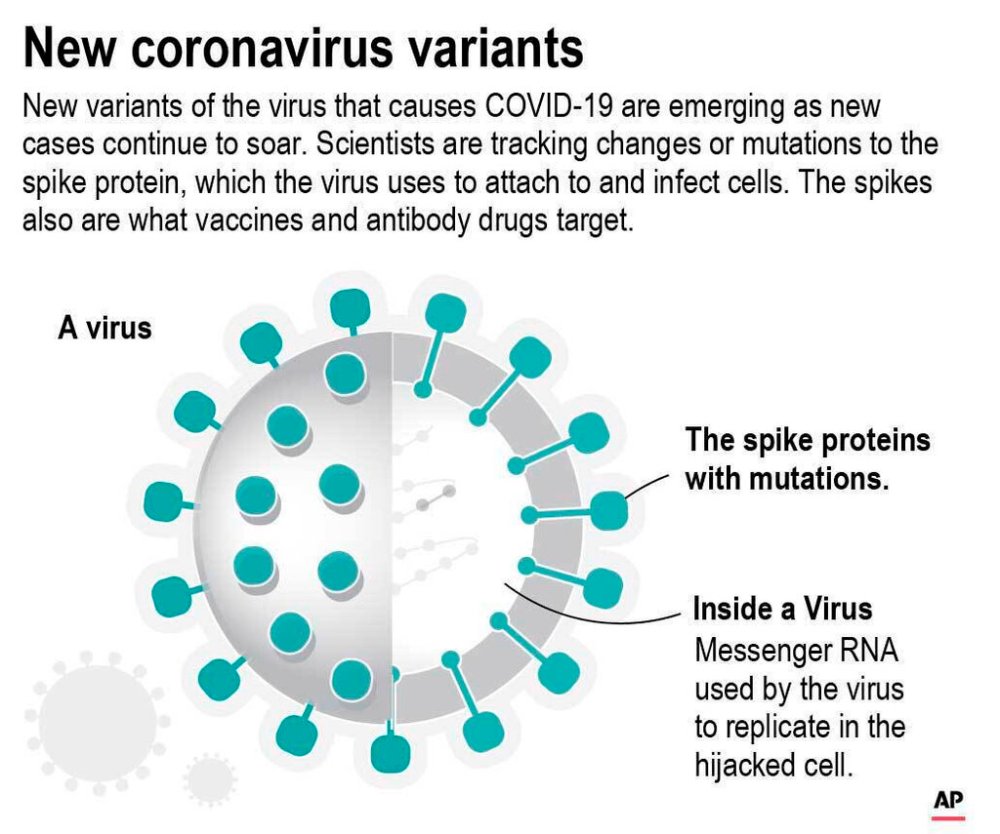
Meanwhile, Roussin said Manitoba has plans to ramp up both screening and sequencing for variant strains. Screening involves checking for mutations in batches, while sequencing is a much more detailed process that can take weeks.
The provincial government currently sequences just five per cent of positive COVID-19 samples. It argues this falls within national guidelines, and that it wouldn’t be worth the expense to sequence each single positive test.
On Tuesday, Roussin said samples that are picked to be sequenced come from anyone who has travelled internationally, and from outbreaks in the general population.
University of Manitoba biology professor Jeffrey Marcus said his colleagues pay around $200 to sequence one genetic sample in Manitoba, regardless of whether it’s a human or animal virus.
He argued the province should sequence every single positive case, which he said under current rates would cost up to $20,000 a day. Marcus said the cost would be worth it to keep cases low until vaccines are widely available.
“They might have to lock down the city of Winnipeg for three or four weeks to get community spread from one of these new variants under control,” Marcus said.
“If we have to do that, $20,000 a day seems pretty cheap to me.”
“We’ve detected many, many variants in Manitoba over time, just none of them really had any clinical significance, up until now.”– Dr. Brent Roussin
Provincial officials say the reason Manitoba has reopened gradually relates to the rise of virus variants.
It’s also why the province expanded its isolation orders as of Jan. 29, in which almost everyone who enters Manitoba is required to self-isolate for two weeks. Before that, the requirement didn’t apply to people who arrived in Manitoba from Western Canada and west of Terrace Bay, Ont.
Meanwhile, the federal Quarantine Act applies to most Canadians who arrive home from abroad, by compelling them to isolate for two weeks. They also need to get a negative COVID-19 test before entering Canada, and air passengers will soon need to pay $2,000 to stay in a hotel for three days upon arrival.
Both the federal and provincial orders exempt essential workers, including those who have to cross into Minnesota and North Dakota for work, which are two of the states with the highest spread of COVID-19.
Both Kumar and Marcus stressed that the fundamentals for containing COVID-19 — masks, distancing and washing hands — also work to keep the variants at bay.
“In the absence of any ability to actually control the infections, we have to use those tools that we have available,” Marcus said.
“The more people try to make exceptions for themselves, for whatever good reason they think they have, the more likely we’re all going to be in trouble.”
As of Friday, the province will allow more businesses to reopen, but with gathering limits.
dylan.robertson@freepress.mb.ca
History
Updated on Tuesday, February 9, 2021 10:19 PM CST: Corrects Terrace Bay, Ont.
Updated on Wednesday, February 10, 2021 10:02 AM CST: Minor copy editing changes


